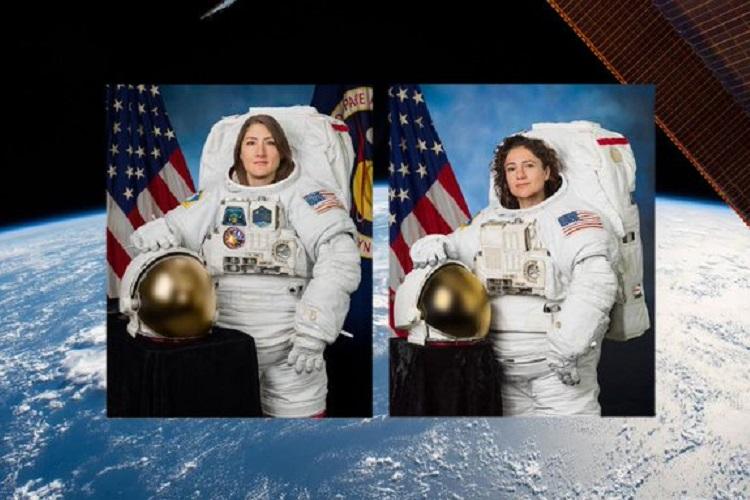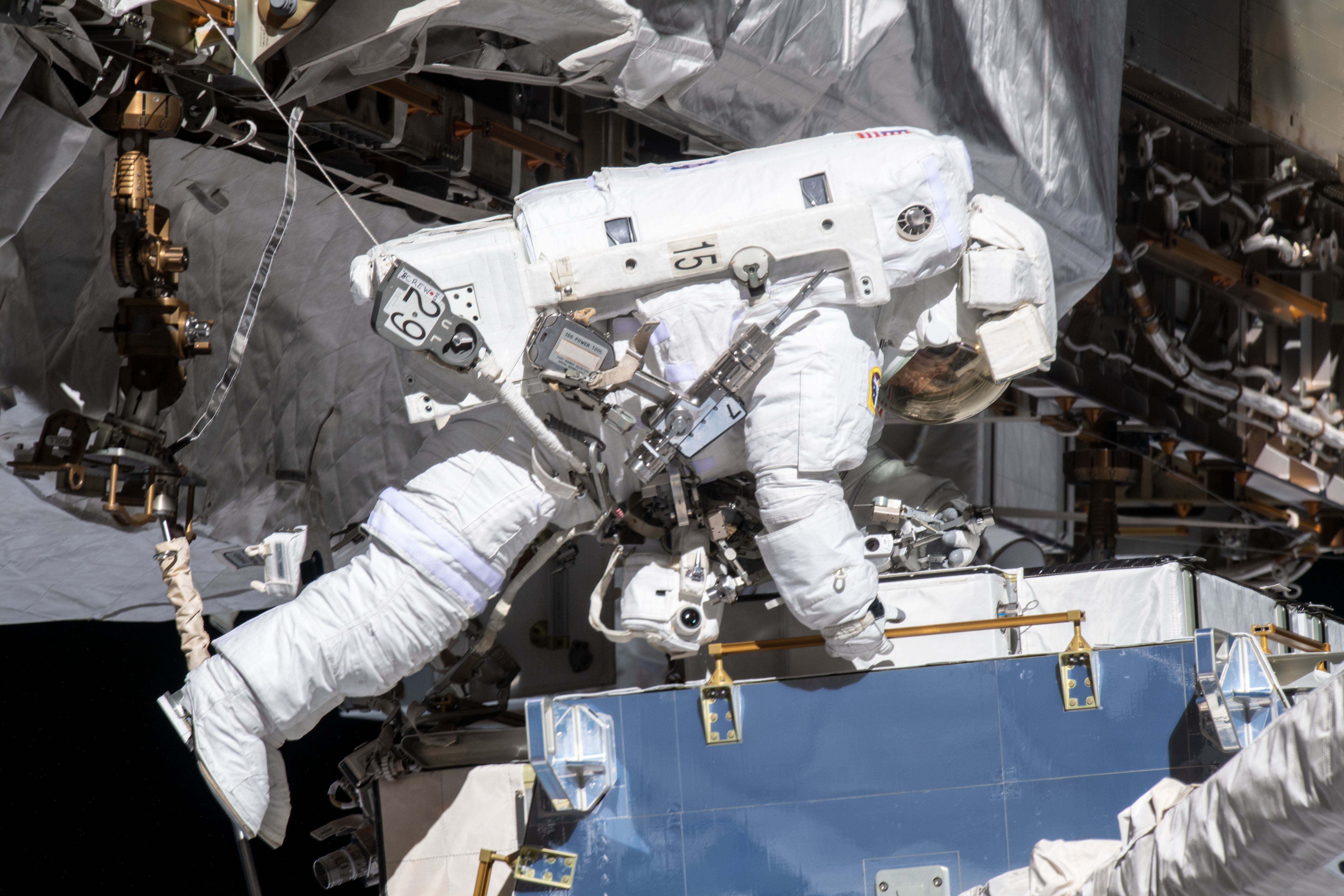
Ever since humans began venturing into space, 227 astronauts have left the spacecraft to perform some sort of extravehicular activity (EVA). While 14 of those have been women, the female astronauts have always been accompanied by a male counterpart. On October 18, 2019, US astronauts Christina Koch and Jessica Meir became the first all-female team to conduct a spacewalk to replace a failed battery controller.
The historic event began at 7:38 a.m. ET when Koch and Meir set their spacesuits to battery power. Live-streamed by NASA, it was witnessed by thousands of space fans, particularly young girls aspiring to be astronauts. The scientists, who spent seven hours and 17 minutes fixing the controller and completing other preliminary tasks for the station, were able to observe the Earth passing beneath their feet. Koch and Meir returned to the ISS at 2:55 p.m. ET, where they were greeted with cheers by their four male colleagues.

When asked about the significance of her mission and this spacewalk, Koch said, “In the end, I do think it’s important, and I think it’s important because of the historical nature of what we’re doing. In the past, women haven’t always been at the table. It’s wonderful to be contributing to the space program at a time when all contributions are being accepted when everyone has a role. That can lead in turn to increased chance for success. There are a lot of people who derive motivation from inspiring stories of people who look like them, and I think it’s an important story to tell.”
Meir added, “What we’re doing now shows all the work that went in for the decades prior, all of the women that worked to get us where we are today.”

The all-female EVA was initially scheduled for March 2019. However, a week before the planned excursion, NASA announced that Anne McClain, who was supposed to accompany Koch, would be replaced with astronaut Nick Hague. The reason was that both Koch and McClain needed a medium-sized spacesuit. Though the ISS had two, only one was suitable for spacewalking. Since it would take time to fully configure the spare suit, the space agency decided to send Koch with Hague instead. NASA has since sent another spacewalk-ready suit to the ISS, which means that going forward, all-female spacewalks may become a norm, rather than the exception.
Koch will make additional history when she completes her 11-month mission at the ISS in February 2020. Her 328-day stay in space will be the longest by a woman and just a few days shy of US astronaut Scott Kelly's 340-day record. Similar to Kelly, her extended mission is designed to provide researchers the opportunity to observe the effects of long duration spaceflight on the human body — more specifically the female body — to prepare for human missions to the Moon and Mars.
Resources: theverge.com,theguardian.com, NASA.gov
